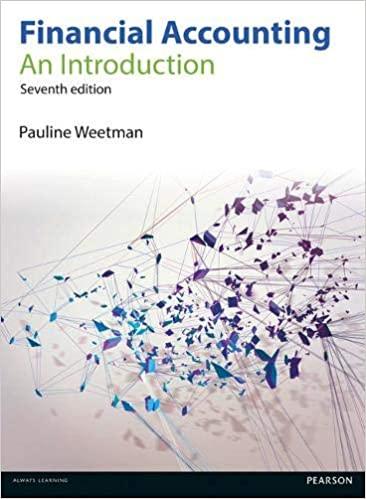WHSmith plc is one of the UKs leading retailers and is made up of two core businesses
Question:
WHSmith plc is one of the UK’s leading retailers and is made up of two core businesses – Travel and High Street.
Extracts from Annual report and accounts About us WHSmith has a presence in a wide range of locations including airports, train stations, motorway service areas, hospitals and UK high streets, with a growing international business.
Principal risks and uncertainties (extract): Key suppliers and supply chain management Risk/description The Group has agreements with key suppliers in the UK, Europe and the Far East. The interruption or loss of supply of core category products from these suppliers to our stores may affect our ability to trade.
Quality of supply issues may also impact the Group’s reputation and impact our ability to trade.
Mitigation The Group conducts risk assessments of all its key suppliers to identify alternatives and develop contingency plans in the event that any of these key suppliers fail. All suppliers have to comply with the conditions laid out in our Supplier Code of Conduct which covers areas such as production methods, employee working conditions and quality control. The Group has contractual and other arrangements with numerous third parties in support of its business activities. None of these arrangements are individually considered to be essential to the business of the Group.
WHSmith is a member of the Ethical Trading Initiative, an alliance of companies, trade unions and NGOs that promote respect for workers’ rights around the world.
We are committed to good labour standards and respecting the environment in our supply chain. Our Ethical Trading Code of Conduct and Human Rights Policy states our expectations of our suppliers.
The in-house supplier audit team based in our Far East sourcing office carries out a regular programme of supplier audits to monitor labour standards. They visit each new direct-source supplier factory to assess its performance, ensure that minimum standards are met, and, where necessary, agree an action plan to ensure that the factory is improving its performance. We provide support as suppliers make these improvements, and aim to ensure that all direct source suppliers and Asia-based suppliers of UK agents are audited at least every two years.
Against the background of our rigorous audit programme, we continue to engage with our key suppliers to support them as they seek to improve their performance. This engagement continues to focus on improving worker representation in factories. We are working with our largest 12 suppliers to help improve worker representation and thereby staff satisfaction and retention rates.
All of the participating factories now have an elected worker representative committee in place and WHSmith is working with the factories to ensure that the committees are structured properly to give workers the level of representation they seek. A copy of our Ethical Trading Code of Conduct and Human Rights Policy is available at www.whsmithplc.co.uk/corporate_responsibility/our_policies/.
Note to the balance sheet Note 16. Trade and other payables – current

Trade and other payables principally comprise amounts outstanding for trade purchases and ongoing costs. The average credit period taken for trade purchases is 60 days (2013:
59 days). The directors consider that the carrying amount of trade and other payables approximates to their fair value.
Discussion points 1 How does the narrative information add insight into the nature of the liability for trade payables?
2 How significant is the amount of trade payables in the current liabilities?
Step by Step Answer:






